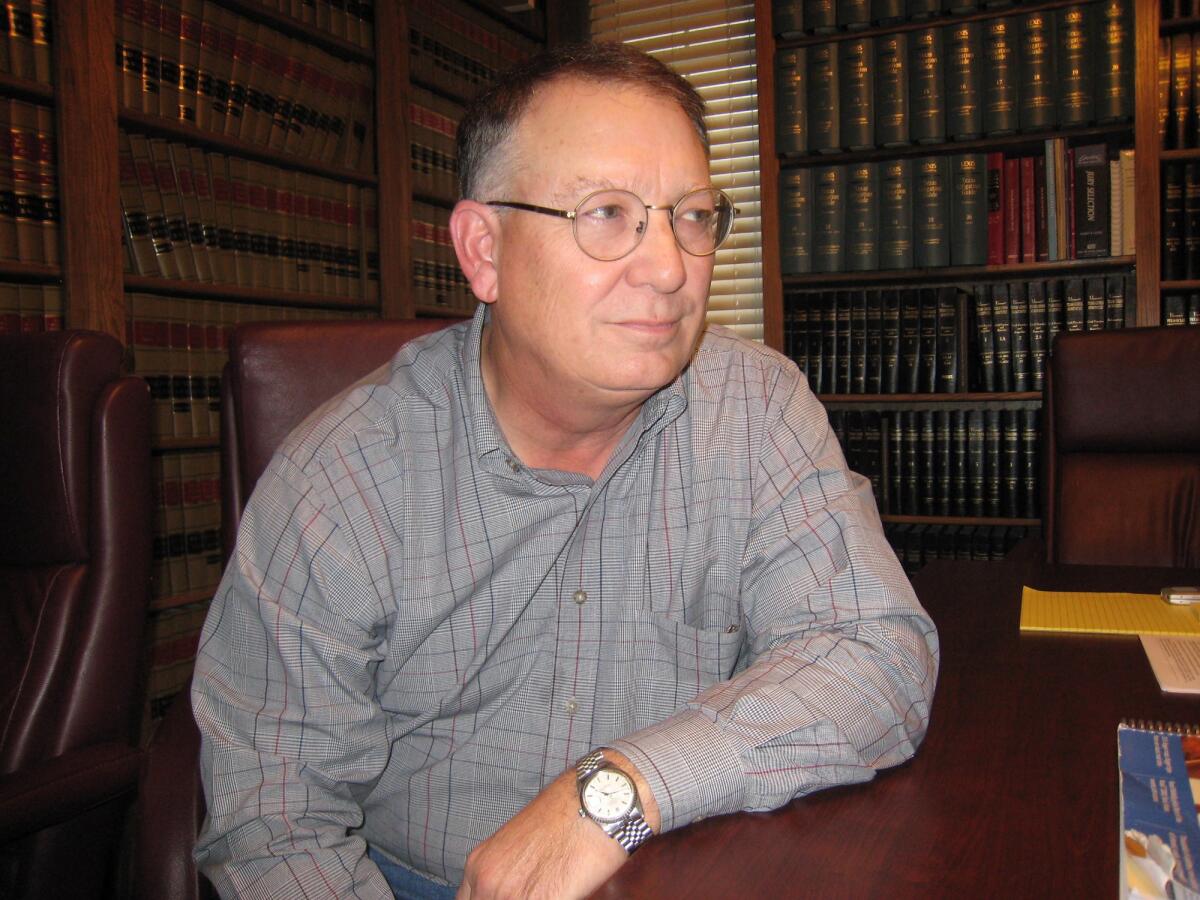Opinion: Questionable Texas execution leads to bar complaint against prosecutor

Some deaths echo longer than others.
A couple of days before Christmas 1991, Cameron Todd Willingham would later tell investigators, he awoke from a nap to a house filled with smoke and flames. He couldnât reach his three toddlers who had been in a back bedroom, and the intense heat sent him stumbling outside as fire consumed the house. Arson, fire investigators determined, and the police quickly zeroed in on Willingham as the one who started it.
Willingham was convicted of murder, sentenced to death, and the execution was carried out in 2004 despite significant questions about whether the fire had, indeed, been intentionally set. Since then, more questions have been raised about the role of a jailhouse informer named Johnny E. Webb, who testified at trial that Willingham had confessed to him. Webb and the prosecutor, John H. Jackson, told the court that no deal had been worked out for Webbâs testimony, something Webb now says was a lie.
The evidence is substantial that in killing Willingham, Texas executed an innocent man, adding yet another layer of tragedy to the horrific deaths of the three children. And the evidence is pretty convincing that the prosecutor, who has stood by the conviction, lied about making a deal with Webb in return for the now-recanted testimony.
Earlier this month, the State Bar of Texas quietly filed a disciplinary complaint against Jackson in Navarro County District Court, Maurice Possley reports at the Marshall Project. Specifically, the bar accuses Jackson of withholding evidence of Willinghamâs innocence before, during and after the trial. From the Marshall Project:
âA lawyer for Jackson, Joseph E. Byrne, on Wednesday urged that people withhold judgment about the case until all the evidence was presented and took issue with the grievance filed against his client by the Innocence Project, a legal advocacy group.
ââI disagree with much of the information that was put together by the Innocence Project and do not find it to be objective,ââ Byrne said.
If found guilty, Jackson could be disbarred -- not much of a penalty if he was indeed culpable for the execution of an innocent man. But itâs somewhat remarkable that a disciplinary body is even trying to hold a prosecutor accountable for apparent misconduct during a trial. That an innocent man was likely executed may put more weight on this case, but there have been other similar acts of misconduct in death penalty cases, actions that rarely receive more than a courtroom rebuke. Though I should note that misconduct and prosecutorial errors are not necessarily intentional.
According to the National Registry of Exonerations, official misconduct was involved in 46% of the 12,569 exonerations it has tracked since 1989. Politico wrote about some of the post-conviction review units that a handful of prosecutorâs offices have adopted to try to ensure the innocent have not been wrongly convicted, something Iâve written about before.
But thatâs just a step. I take it as a given that most prosecutors are focused on justice. But until prosecutors know they face accountability for their infractions, there is little to stop the bad actors from acting badly.
Follow Scott Martelle on Twitter @smartelle.
More to Read
Sign up for Essential California
The most important California stories and recommendations in your inbox every morning.
You may occasionally receive promotional content from the Los Angeles Times.











